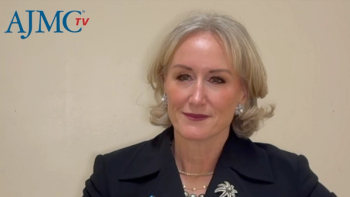
Compliance and Adherence to Therapy in mBC
The importance of patient education in managing toxicities on therapy in metastatic breast cancer.
Transcript
Hope S. Rugo, MD: Claudine, what are your thoughts about this? Who would you decide to use Oraxol for? What do you think about adherence and the share of costs for patients?
Claudine J. Isaacs, MD: Those are all critically important points, and I think we’ve already raised a number of the points that we think about with oral therapies versus IV [intravenous] and managing some of the pros and cons. One of the things I don't think we've gotten to quite yet are some of the issues regarding compliance and adherence to therapy. We know that that's a big issue with adjuvant endocrine therapy for instance, and it might be different when you're talking about the metastatic setting in terms of adherence to therapy.
There will be different factors pushing people one way or the other, but with complicated drug regimens there is a lot of continuing education that needs to happen for patients, not only in terms of how they take the drugs and when they're supposed to take them, but also this question about managing toxicity being very clear. One of the things that we have traditionally been very good at is if we're giving IV therapies, that the patients are coming into the infusion unit, they get a toxicity check by virtue of showing up, and often the infusion nurses are excellent at this.
They call us, page us, and they have us come by. Different groups have different systems for it, but you lose that when someone is on oral therapy, so I think it underlines the importance of careful patient education, how to reach out, how to manage the toxicities, and what to do about this. Obviously having more options is great, but just because these drugs are oral, it doesn't mean they don't have toxicity. It's really about balancing on an individual basis what's best for a particular patient.
Hope S. Rugo, MD: Absolutely, and I think that's well said. Priyanka, you mentioned that you're in a rural situation. People did have nausea. Although the neuropathy was impressively better to me because neuropathy is such a big issue for us in long-term paclitaxel, they did have nausea, but our colleagues in Central America said that it was easily controlled with antiemetic therapy.
Priyanka Sharma, MD: For our patients, not needing to come to the infusion room every week would certainly be a plus, but the complexity of taking the medication would also have to be considered. You have to wait a certain number of hours after you take 1 aspect of it, and take multiple pills, and then fast for more hours. That would raise concerns with some patients where we don't know whether they would be able to comply with that complexity.
One of the advantages of this particular formulation is lack of need for steroids. A lot of patients are concerned about needing to take weekly steroids for weekly paclitaxel, especially those who have diabetes that's not that controlled. We talked about potentially combining with other drugs, so a lack of need of steroids would also make something like this more appealing to be able to combine with other drugs. For example, this could be PI3 [phosphoinositide 3] kinase inhibitors or AKT inhibitors that cause hypoglycemia.
Hope S. Rugo, MD: That's a good point, the steroids, and also the point that you brought up about fasting is important too. This is because interestingly, capecitabine doesn't have those. But this oral medication, as many have in the past, has very strict criteria in terms of fasting before and after taking the pill. You do that 3 days in a row every week for 3 weeks out of every 4 weeks, so it's a big issue. They are studying whether they can have more food closer together and studying to understand the food effect. But that will be a big question for us in how we are able to use this in different patient populations.
Newsletter
Stay ahead of policy, cost, and value—subscribe to AJMC for expert insights at the intersection of clinical care and health economics.








